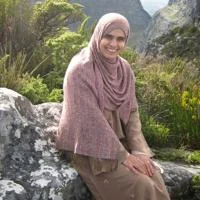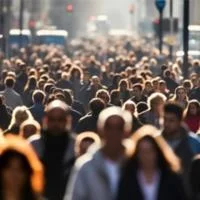Events
Upcoming public events

Eco-social contracts for sustainable and just futures
Hosted by the Atlantic Fellows for Social and Economic Equity and the Global School of SustainabilityWednesday 18 February 2026, 6.30 to 8.00pm. In-person and online public event. Old Theatre, LSE Old Building.
Speakers:
Dr Najma Mohamed, Head of Nature-Based Solutions, UNEP WCMC and Atlantic Fellow for Social and Economic Equity
Professor Manisha Desai, Executive Director, Center for Changing Systems of Power; Empowerment Trust Endowed Professor of Global Citizenship, Stony Brook University
Ashfaq Khalfan, Director, Sustainability Regulation Observatory (SRO); Distinguished Policy Fellow, Global School of Sustainability, LSE
Mary Robinson, Former President of Ireland; former UN High Commissioner for Human Rights; former Chair of The EldersChair:
Dr George Kunnath, Associate Professor (Education) and Academic Lead, Atlantic Fellows for Social and Economic EquityFor changemakers, students, and everyone seeking hope, direction, and clarity during a time of global uncertainty, join us for the launch of a book that serves as both a call to action and a guide for transformation—encouraging readers to imagine and co-create sustainable and just futures.
At this event, you will hear from contributors of this ground breaking open-access volume presenting eco-social contracts as a bold and actionable vision for tackling the major, interconnected crises of our time—climate change, biodiversity loss, rising inequality, and the erosion of public trust and democratic legitimacy. At its core lies a crucial realisation that can no longer be ignored: the social contract has been broken for billions of people. Consequently, the bonds between people, the planet, and power need to be rewoven. Connecting theory and practice, the book offers essential insights into how regenerative, inclusive, and just futures can be co-created.

Finding the white working class in multicultural nationalism
Thursday 12 March 2026, 6.30 to 8.00pm. In-person and online public event. LSE Marshall Building 2.04.
Speakers:
Professor John Denham, Professorial Research Fellow and Director of the Centre for English Identity and Politics, Southampton University
Professor Sara Hobolt, Sutherland Chair in European Institutions and Head of Deparment, LSE Department of Government
Professor Anand Menon, Professor of European Politics and Foreign Affairs, King's College London; Director, UK in a Changing Europe
Dr Sam Taylor Hill, Programme Manager of the Orwell Youth Prize and IR Teaching Associate, University of BristolChair:
Professor Mike Savage, Professorial Research Fellow, LSE IIIAs Reform UK gains traction among white working-class voters, Labour faces renewed pressure to define its national story. With the revival of ‘Blue Labour’ social conservatism, the party faces a defining challenge: can it tell a national story that includes everyone?
This event explores how Labour’s electoral strategy reflects a zero-sum approach that struggles to hold together its diverse coalition. It develops the idea of multicultural nationalism as a more inclusive framework – one that seeks to bring both ethnic minorities and disaffected white working-class communities into a shared sense of belonging. Can Labour move beyond choosing between factions to build a pluralistic and cohesive vision of Britain?
Our panel will discuss these questions and consider the possibilities of building a national project that truly reflects the country’s diversity.

How stories can transcend borders and boxes of identity
Hosted by the Atlantic Fellows for Social and Economic EquityWednesday 18 March 2026, 6.30pm - 8pm. In-person and online public event. Old Theatre, LSE Old Building.
Speakers:
Elif Shafak, Novelist and Storyteller
Lily Jamaludin, Writer and Atlantic Fellow for Social and Economic EquityChair:
Professor Armine Ishkanian, Executive Director, Atlantic Fellows for Social and Economic Equity; Professor, Department of Social Policy, LSEBy drawing upon multiple disciplines and weaving these threads into the broader practice of literary arts, the Turkish-British writer Elif Shafak offers an inspirational talk about our world today, the stories that bring us together, and the silences that keep us apart.
For a long time, philosophers and artists have asked the question: how can we balance vita activa (the active life) and vita contemplativa (the contemplative life)? Now an additional challenge is added to the equation: vita apathetica (life of apathy/life without passions). Too much information causes an emotional and intellectual fatigue, exacerbating this state of apathy—numbness, indifference. Literature is the antidote to this state. In this AFSEE Keynote Lecture, Elif Shafak, joined by discussant Lily Jamaludin, will reflect on what literature and art, more specifically the art of storytelling, can offer us at this moment.
Previous public events
Catch up on all of our past events here.